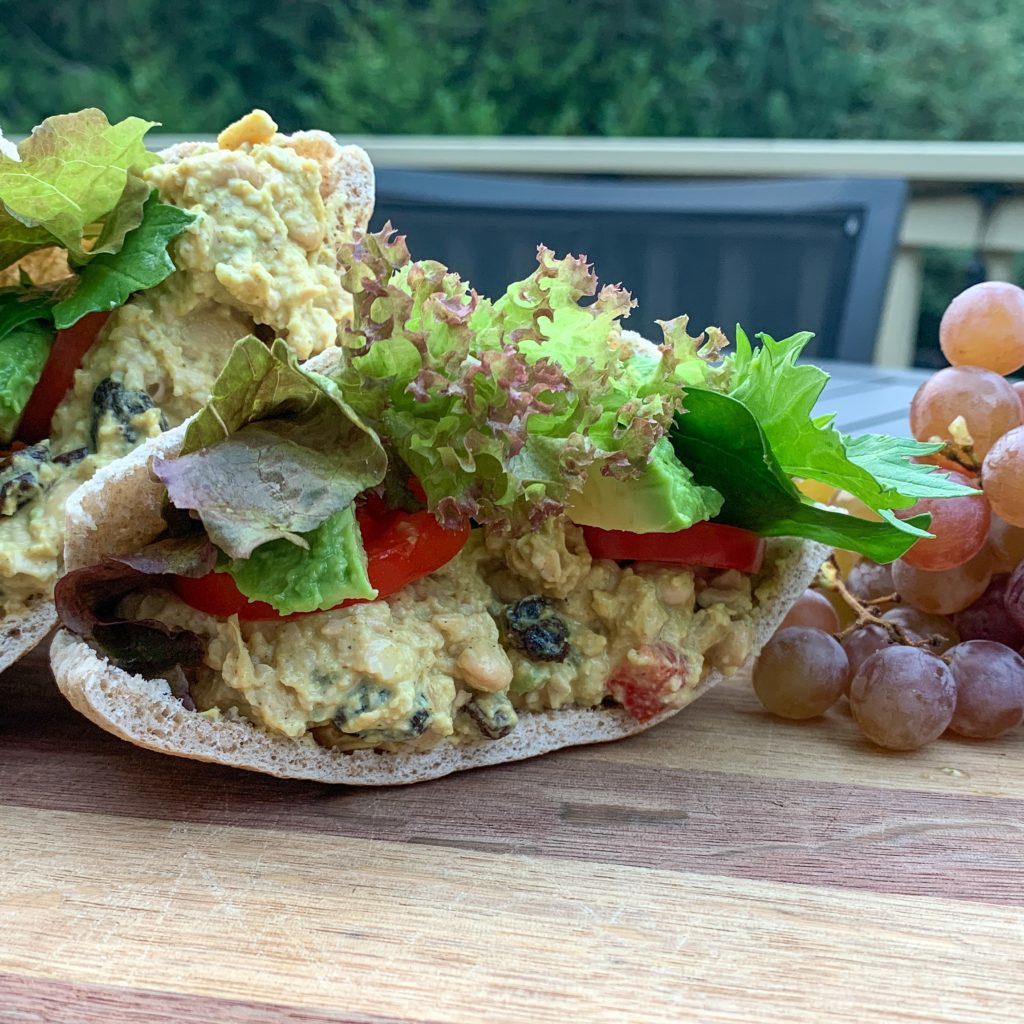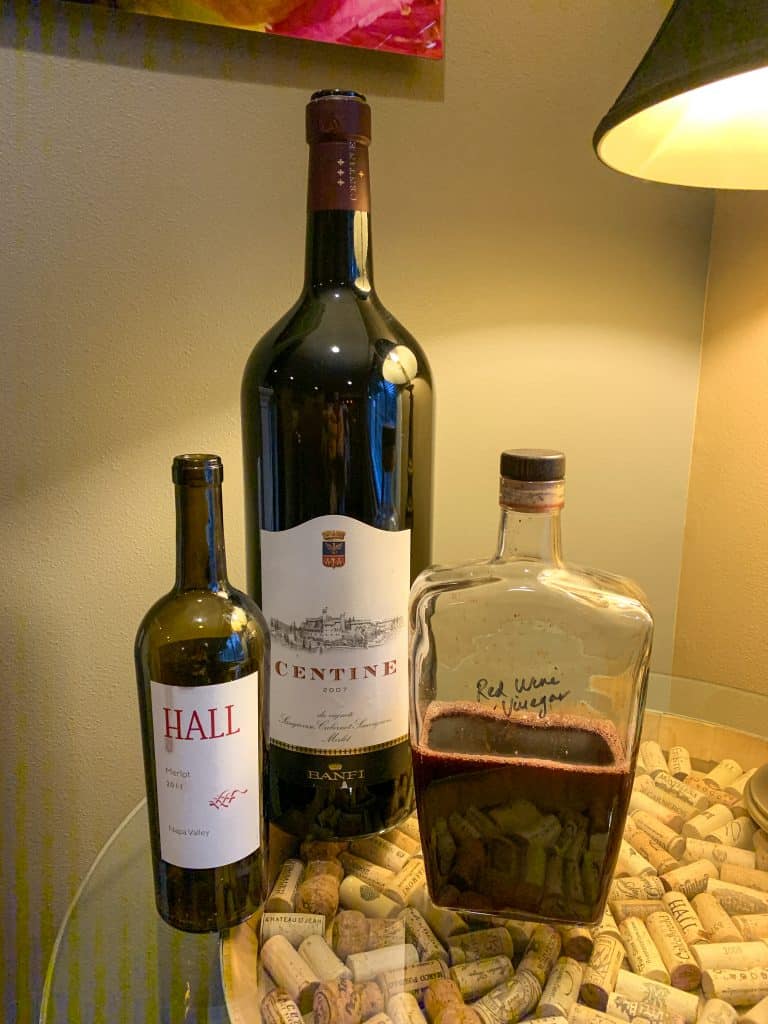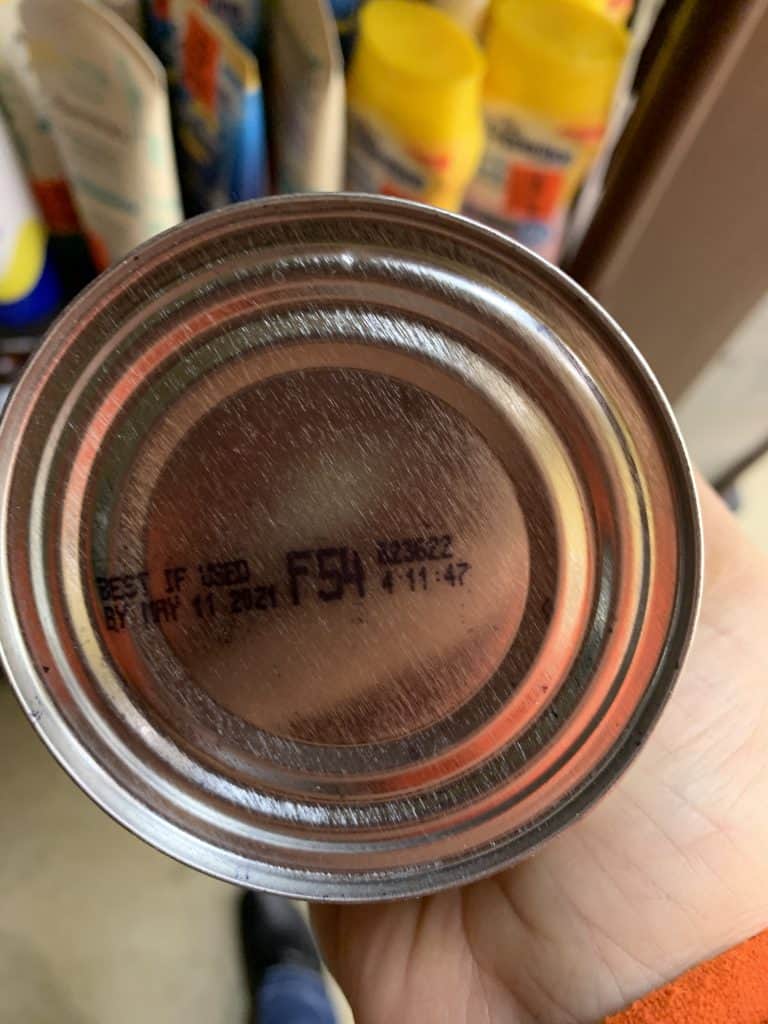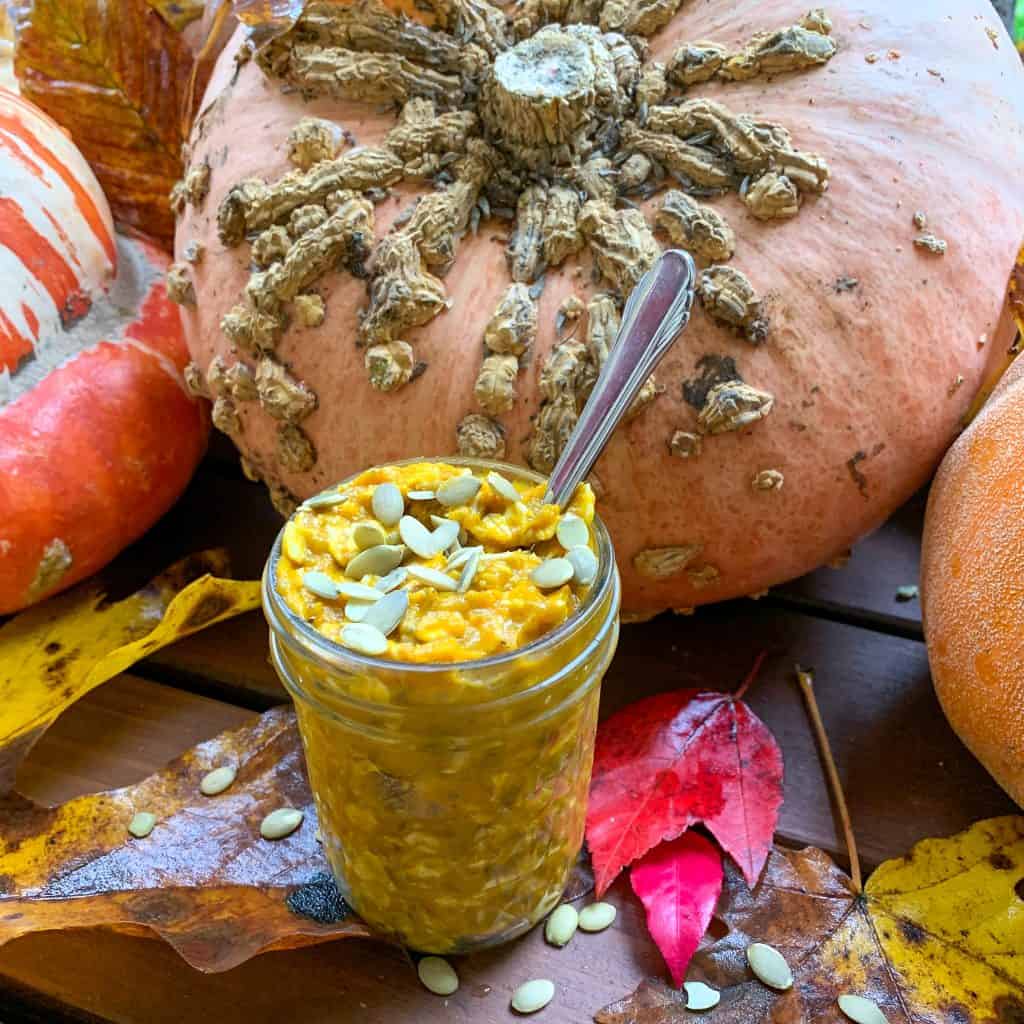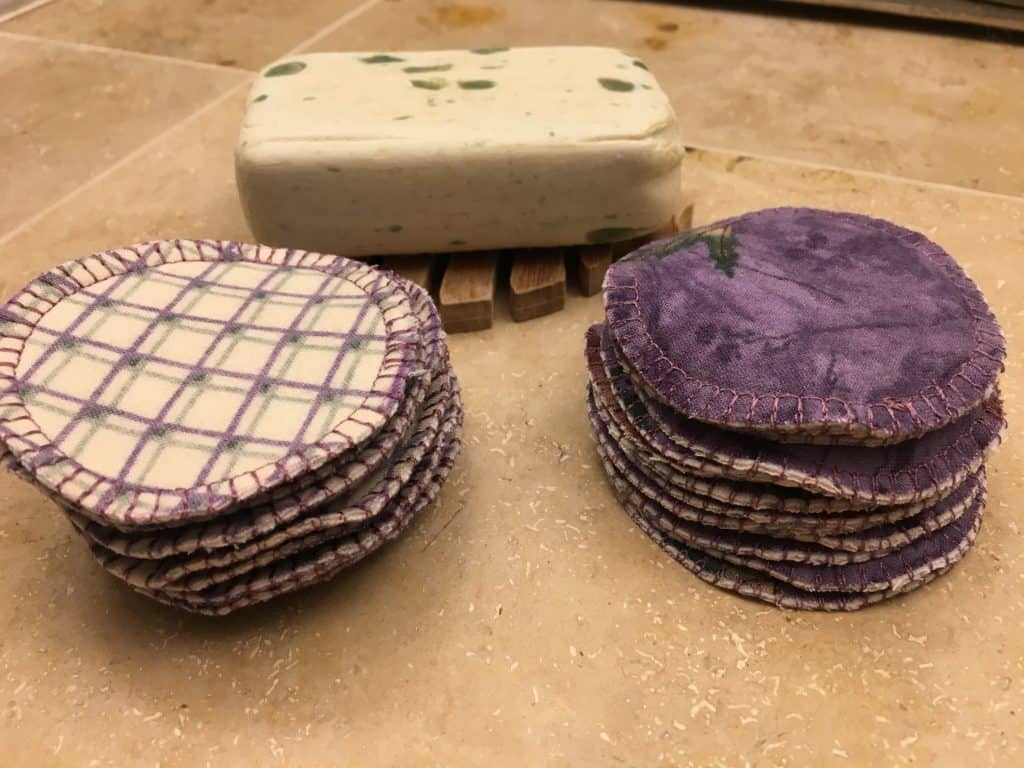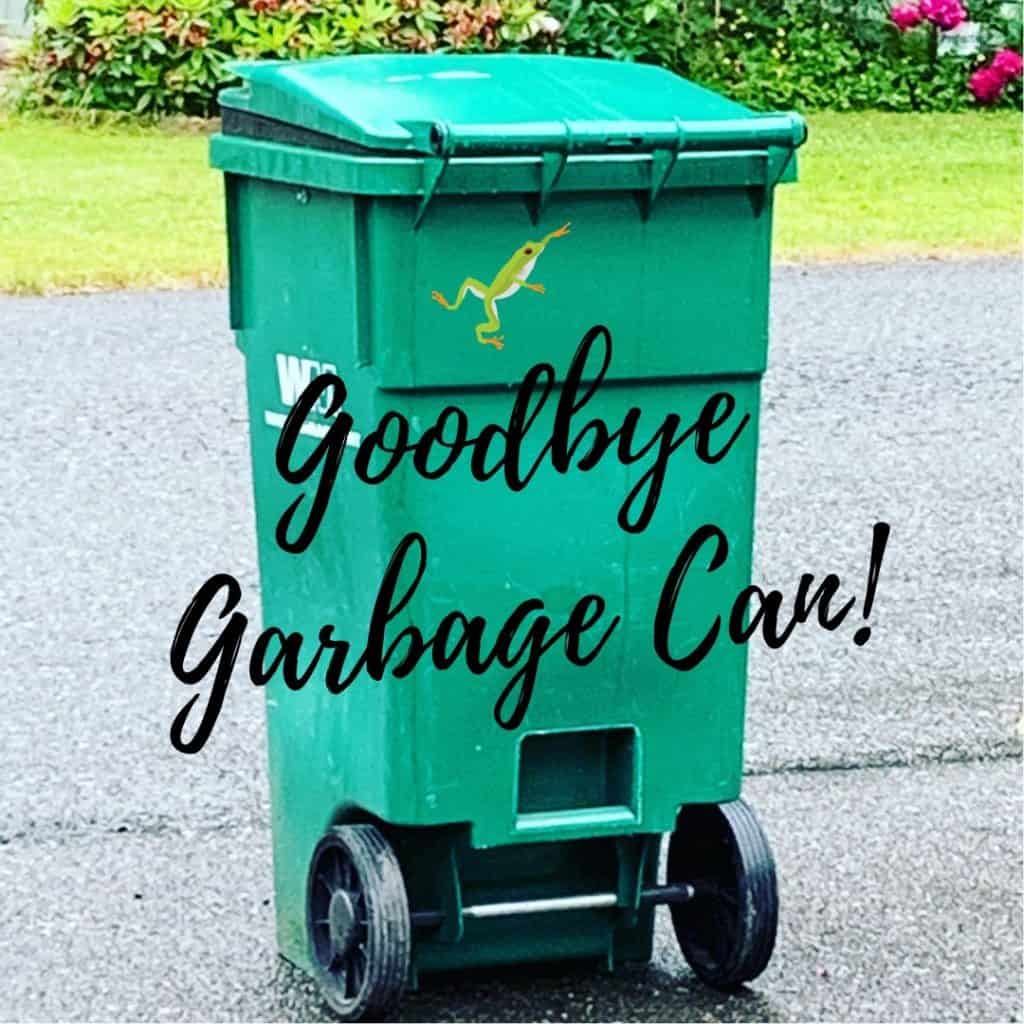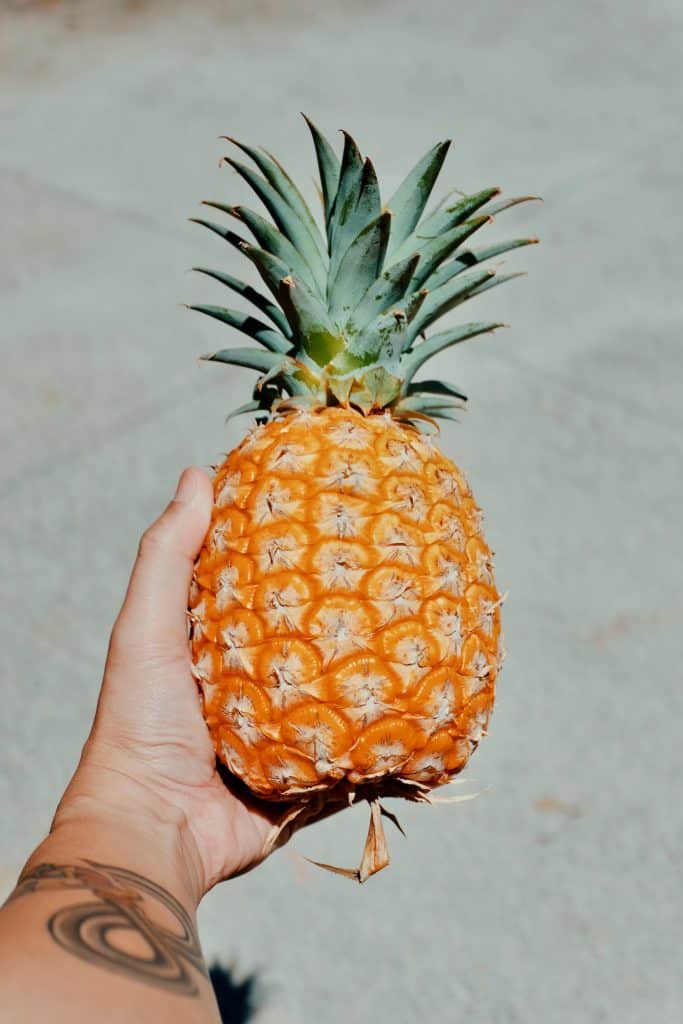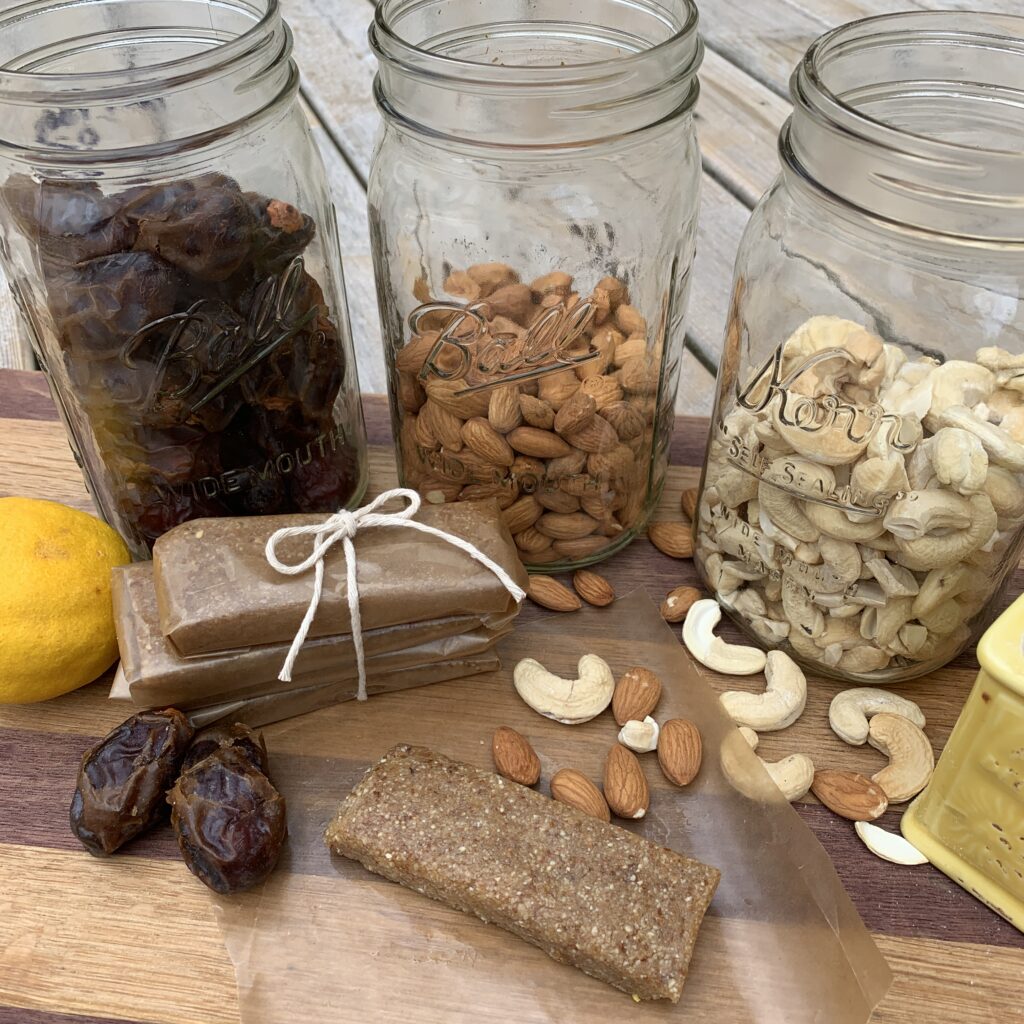Have Food Scraps Will Travel

Our bowls of food scraps we accumulated on our 10 day trip to Palm Desert, CA.
A common question people often have when starting to go zero waste is how do I travel zero waste? I’ve discussed some aspects of this, such has how to travel with your own food and water to be zero waste, but how do you deal with your food scraps when you’re traveling? Alan and I just returned from a ten day trip to Palm Desert, California, and I’m going to share what we did on our vacation to maintain our zero waste principles. Not only did we have a wonderful guilt-free time, but we met an awesome person doing amazing zero waste work!
As I’ve mentioned before, we prefer to stay in lodging that has at least a kitchenette, preferably a complete kitchen when we travel. This does several things for us:
- Saves money. Eating out is expensive, even if you just go grab oatmeal and fruit for breakfast at a diner. Nothing irritates me more than paying $20 for a breakfast of plain oatmeal, a cup of fruit, and cup of coffee, which would cost $3 if I made it at home! And that’s just breakfast, lunches and dinners are even more expensive out.
- Saves time. I’d really like to use the time it takes to wait for a table, wait to order, wait to get the food, and wait for the check to do something fun!
- I control what I eat. I can guarantee what I’m eating will be whole food, plant-based, yummy, refined oil-free, organic, non-GMO, lower in calories, etc.
- We eat less. No matter where you go, you’re going to get larger serving sizes when you eat out. And sometimes, you just want a nibble for lunch, not a whole meal.
- You have snacks this way, and healthy ones at that.
- Get an education about the local area, its agriculture, etc. by exploring local markets, farms, grocery stores.
- Produces less waste. There’s less packaging when I can pick out my own ingredients.
My Travel Cooking Pack

My Outdoor Research Kitchen Travel Pack.
I take a small cooking pack when we travel. I’ve had this Outdoor Research brand Outdoor Kitchen pack for years. They don’t make it anymore, but they do have a similar generic pack called the Backcountry Organizer and Osprey has a cool Ultralight Roll Organizer that could work too. I keep essential spices and two knives in it. Because it has knives, I have to check the bag it’s in if we’re flying. But I’ve discovered that most knives in hotel/rental kitchens are really horrible, so I prefer to bring my own.
What’s in my cooking pack?
- Salt
- Black pepper
- Curry powder
- Turmeric
- Cinnamon
- Smoked paprika
- Nutritional yeast
- Bragg’s Aminos
- Ground cumin
- Granulated garlic
- Kala Namak (black salt)
- Vegetable bouillon

What’s in my Kitchen Travel Pack.
This way I can always make a tofu scramble, a stirfry, pineapple fried rice, oatmeal with cinnamon, etc. I’ve had most of these containers for years and just keep refilling them. I also have a couple ziplock bags I’ve been reusing for a decade to prevent any spills in my luggage.
Vacation Food Shopping

Bulk shopping at Clark’s Nutrition in Rancho Mirage, CA, where we picked up brown rice and old-fashioned oats.
I try to shop fairly light when we’re traveling. In my mind I think I need to cook a different dinner and different lunch every day, but that’s just not the reality. I start with one dinner, which can often serve for two dinners or several lunches, because I don’t want to waste food by buying too much to start with. We always load up on fresh fruit, russet and sweet potatoes, and buy oatmeal from bulk bins. Alan can live on oatmeal and russet potatoes, while I can happily subsist on sweet potatoes and fruit! We also buy coffee to make in the pot instead of using the packaged pre-filled filter packs.
While I have been known to make my sweet potato tortillas when we travel (a bottle of wine makes an excellent rolling pin!), we tend to buy bread from a bakery. And because we don’t always know the available options, we do sometimes pick up packaged items, although we try to find recyclable packaging as much as possible.
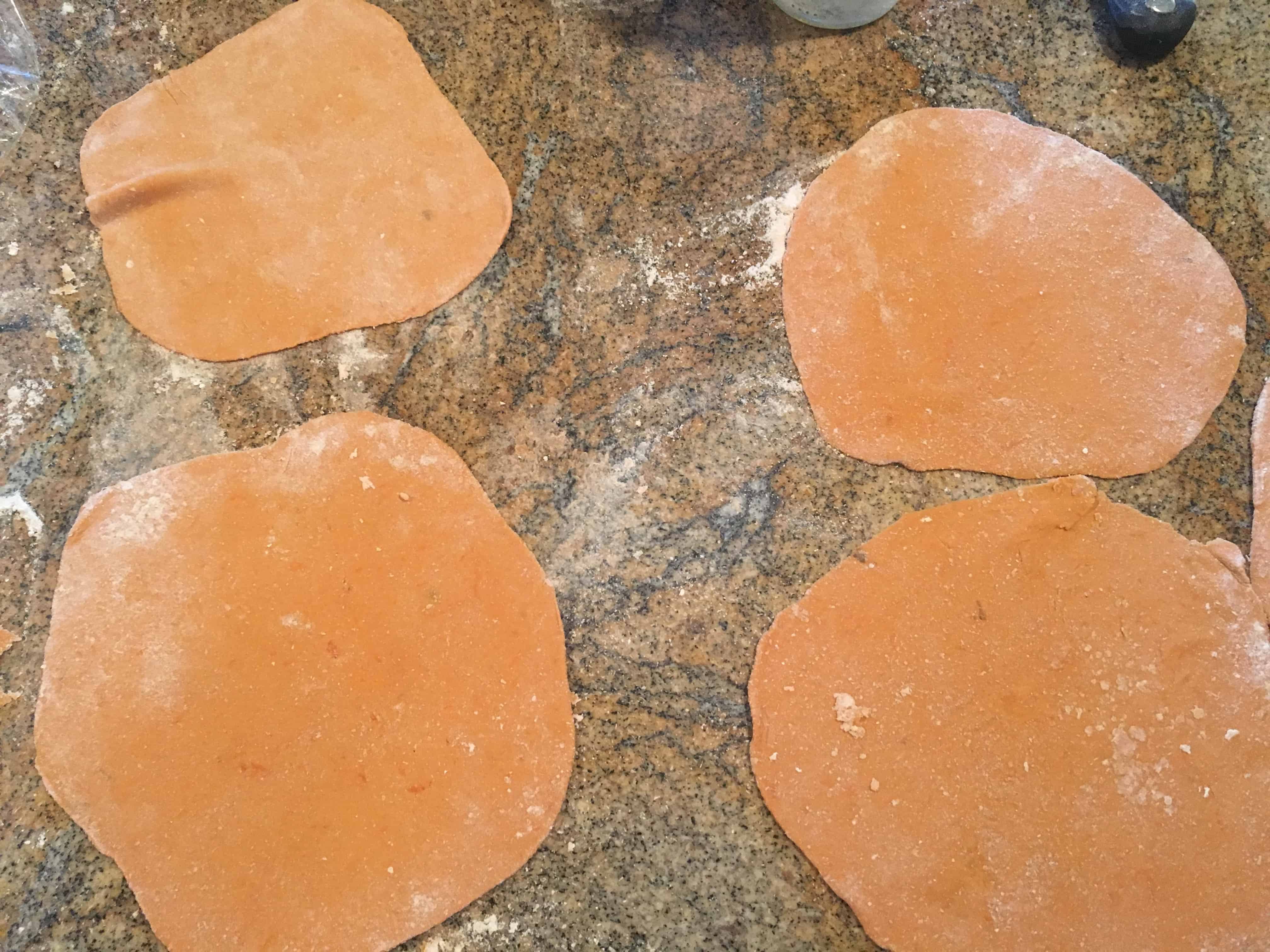
Sweet Potato Tortillas on Hawaiian vacation, rolled out with a bottle of wine!
We always travel with a couple reusable shopping bags and mesh produce bags. These go in the checked bag with the travel kitchen pack.
Check with your lodging staff about recycling options where you are staying. Most rooms only have a garbage can and while we separate out recyclables, we always fear that housekeeping is simply putting the separated items back in the garbage can and dumping them. However, if you ask, some places will bring you a separate co-mingling recycling can for your room. Or, they will tell you where the facility recycling bins are where you can take your items yourself.
What About the Food Scraps?
Food scraps are another issue entirely. I’ve only had one lodging experience that had food waste recycling, an Air B&B home we rented in San Francisco with friends. The resort in Palm Desert had no facilities for guest food waste even though California state law requires businesses to recycle their organic waste. I called the office inquiring where I could compost our food waste, thinking that they’d just let me use the receptacles they have for their restaurants, but was told to just put it in the trash in our room.
Obviously we just couldn’t get ourselves to do that! So here’s what we did:
- We used our food scraps as much as we could. Our room had a pitcher so we used peels from citrus, ginger, cucumbers, pineapple, etc. to make a daily infused water. It was so refreshing!
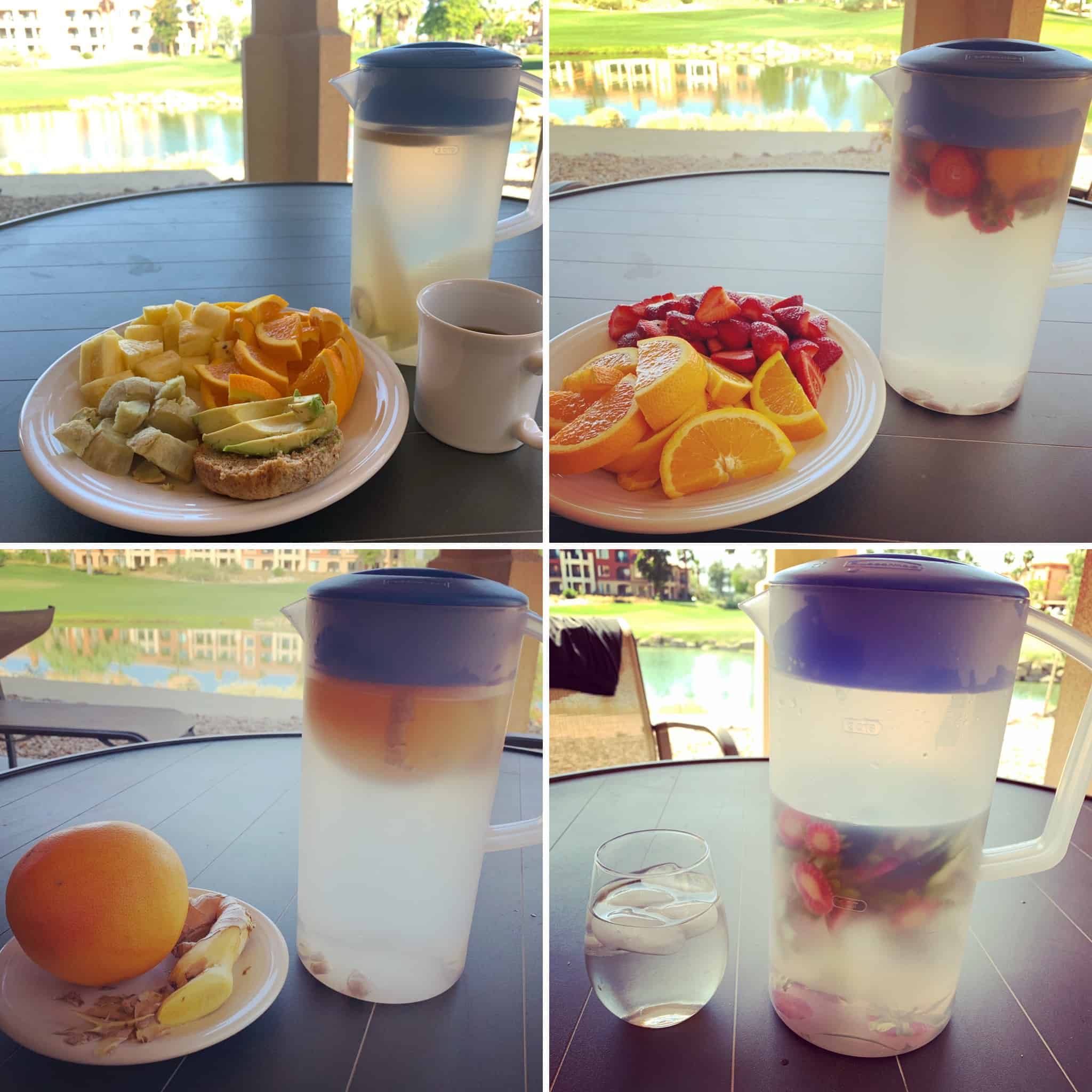
Some food scrap infused waters during our vacation, starting at top left and working clockwise: Pineapple-ginger, Orange-strawberry, Grapefruit-ginger, and Strawberry-ginger-cucumber.
- I searched the ShareWaste app to find someone in the area to take our food waste to! It’s an awesome app, allowing people to register to accept food scraps for their composting, worm-farming, or animal feed. You simply do a search to find places to bring your waste. I was so stoked to be able to use the app, unfortunately, the closest site was over an hour away.
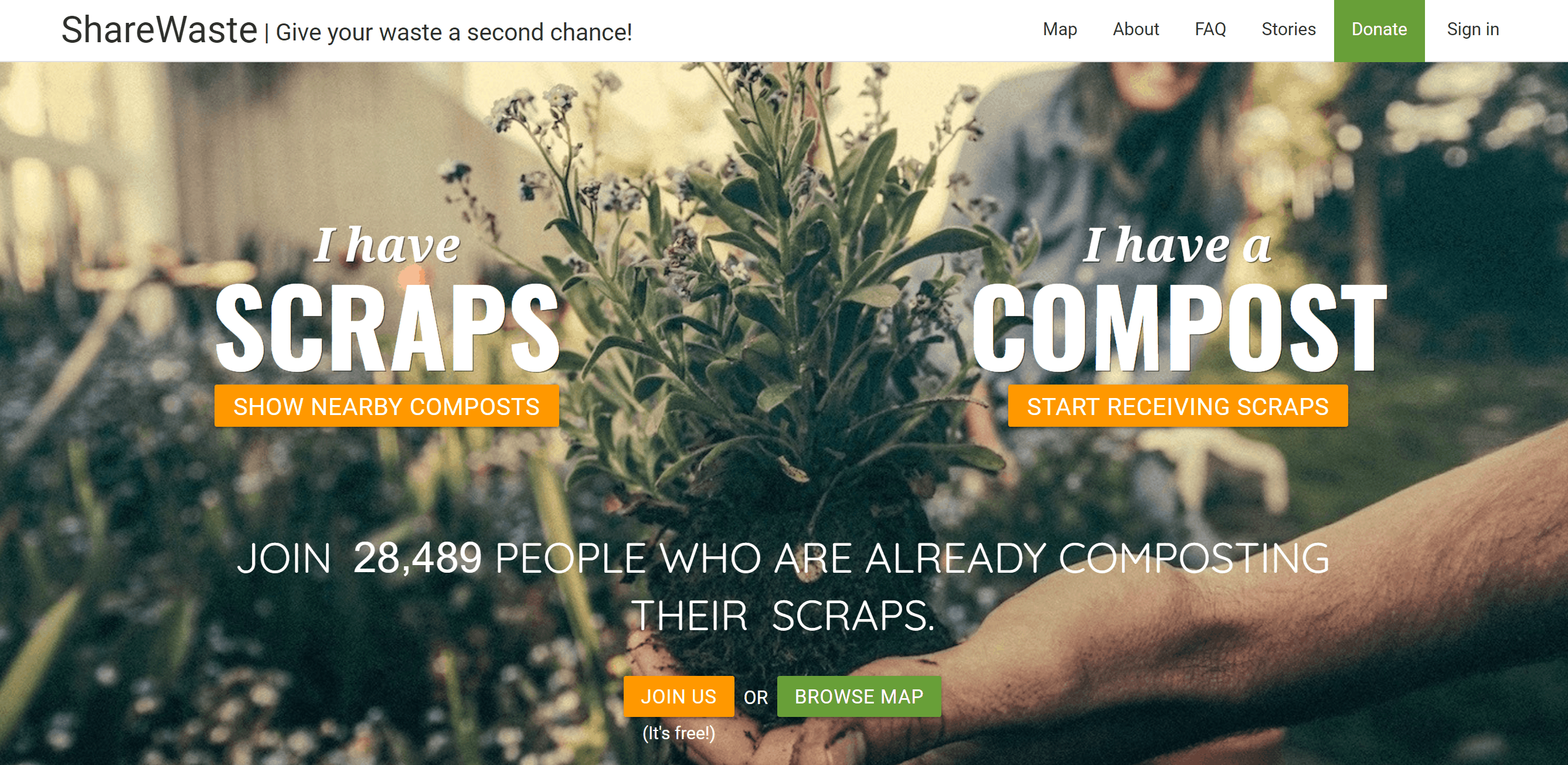
ShareWaste is an awesome app to find places to take organic waste to for composting.
- I entered “Palm Springs Zero Waste” in a Google search and found Tea with Iris, the only zero waster with a website in the area! I sent her a quick email to see if she had any suggestions for where we could compost our food scraps and she offered to let us bring them to her home to put into her home composting bins! How cool is that? We just kept the scraps in bowls in the refrigerator during the trip until it was time to take them to her.
Tea with Iris
Leslie Kelly Shockley owns Tea with Iris, a home-based business that makes sustainable living products in an awesome recycled shipping container in her backyard garden! Her products include reusable produce bags, market bags, napkins, picnic blankets, children’s clothing, and more, all from upcycled and organic materials.

Leslie Kelly Shockley of Tea with Iris and her collection of herbs, avocado peels, and pits for fabric dye.
Alan and I headed out to Leslie’s home with our bowls of fruit and vegetable peels, coffee grinds, and filters on our last day in the Desert. She was so lovely and gave us a tour of her garden and workshop. I was so impressed and inspired by her! She showed us huge baskets of avocado pits and peels she gets from a vendor who sells guacamole at a farmers market, which she dries and uses to dye her organic fabric with! And we learned about some great markets that we’ll visit the next time we’re in Palm Desert.
Please check out Tea with Iris. You can find her products on her website, several Farmers’ Markets in the Coachella Valley, and at Nature’s Health Food & Cafe, Whole Foods Market, and Chula Eatery in the Palm Springs area. Follow her on Instagram too. She’s great!
Hippie Wife, Hippie Life
As Alan was driving us to Leslie’s house with 10 days of food scraps in bowls the trunk, I looked over and told him how much I appreciated him going along with my weirdness of taking our waste to a stranger. Being the textbook extrovert he is, he happily exclaimed, “Go meet and visit with people? Twist my arm!” Nothing thrills him more than meeting new people. Later that afternoon as we lounged by the pool, I came across a YouTube video, Hippie Wife, Hippie Life, so true to our situation that it made us laugh until we cried! I’m pretty lucky, he goes along with it. And even though I found a box of Swifter duster refills hidden in his office desk once, he’s on board.
Hippie Wife, Hippie Life. Johnny Beehner
No Description
You don’t have to compromise your principles when you travel. Keep eating plant-based, whole foods, vegan. Continue your zero waste actions. Use the internet and apps, like ShareWaste and HappyCow to find markets and like-minded people doing great things in the area you are visiting. Alan and I have met awesome people doing amazing work all over the world, from Prague to California to Berlin to Hawaii, just by reaching out. This makes travel even more fun and we learn more about the world when we get to know the people who live there.
What experiences have you had when traveling zero waste? What are your tips for dealing with food scraps and recyclables?
Do you like this post? Please share....
[mashshare]
If you liked this post, you might like one of these:
Categories:
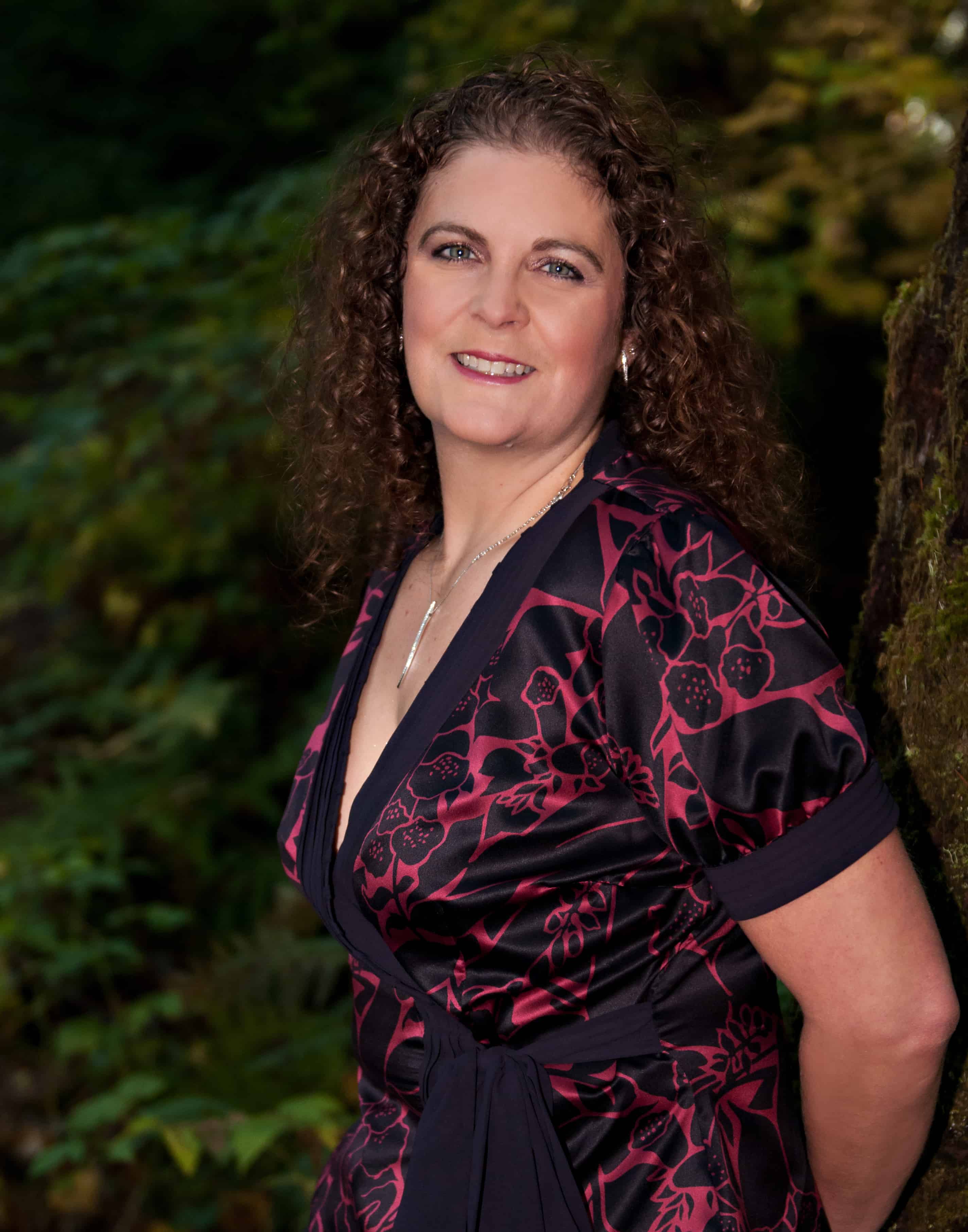
[Trī-māz-ing]
Cindy wants you to be Trimazing—three times better than amazing! After improving her health and fitness through plant-based nutrition, losing 60 pounds and becoming an adult-onset athlete, she retired from her 20-year firefighting career to help people just like you. She works with people and organizations so they can reach their health and wellness goals.
Cindy Thompson is a national board-certified Health and Wellness Coach, Lifestyle Medicine Coach, Master Vegan Lifestyle Coach and Educator, Fitness Nutrition Specialist, Behavior Change Specialist, and Fit2Thrive Firefighter Peer Fitness Trainer. She is a Food for Life Instructor with the Physicians Committee for Responsible Medicine, Rouxbe Plant-Based Professional, and Harvard Medical School Culinary Coach, teaching people how to prepare delicious, satisfying, and health-promoting meals.
She provides health and lifestyle coaching at Trimazing! Health & Lifestyle Coaching. Cindy can be reached at info@trimazing.com.
Subscribe to the Trimazing Blog
Receive occasional blog posts in your email inbox.
Subscribe to the Trimazing Blog
Receive occasional blog posts in your email inbox.






